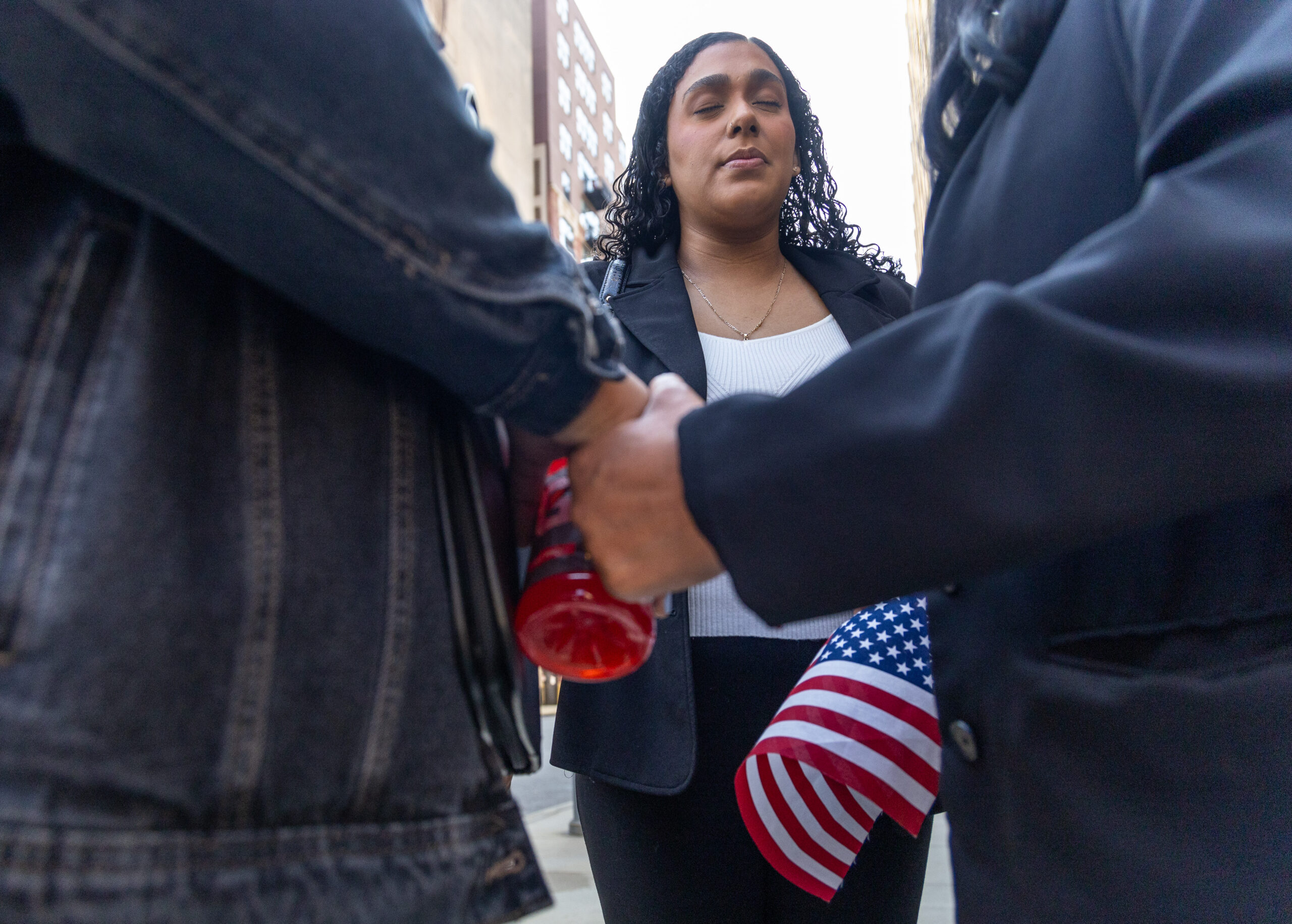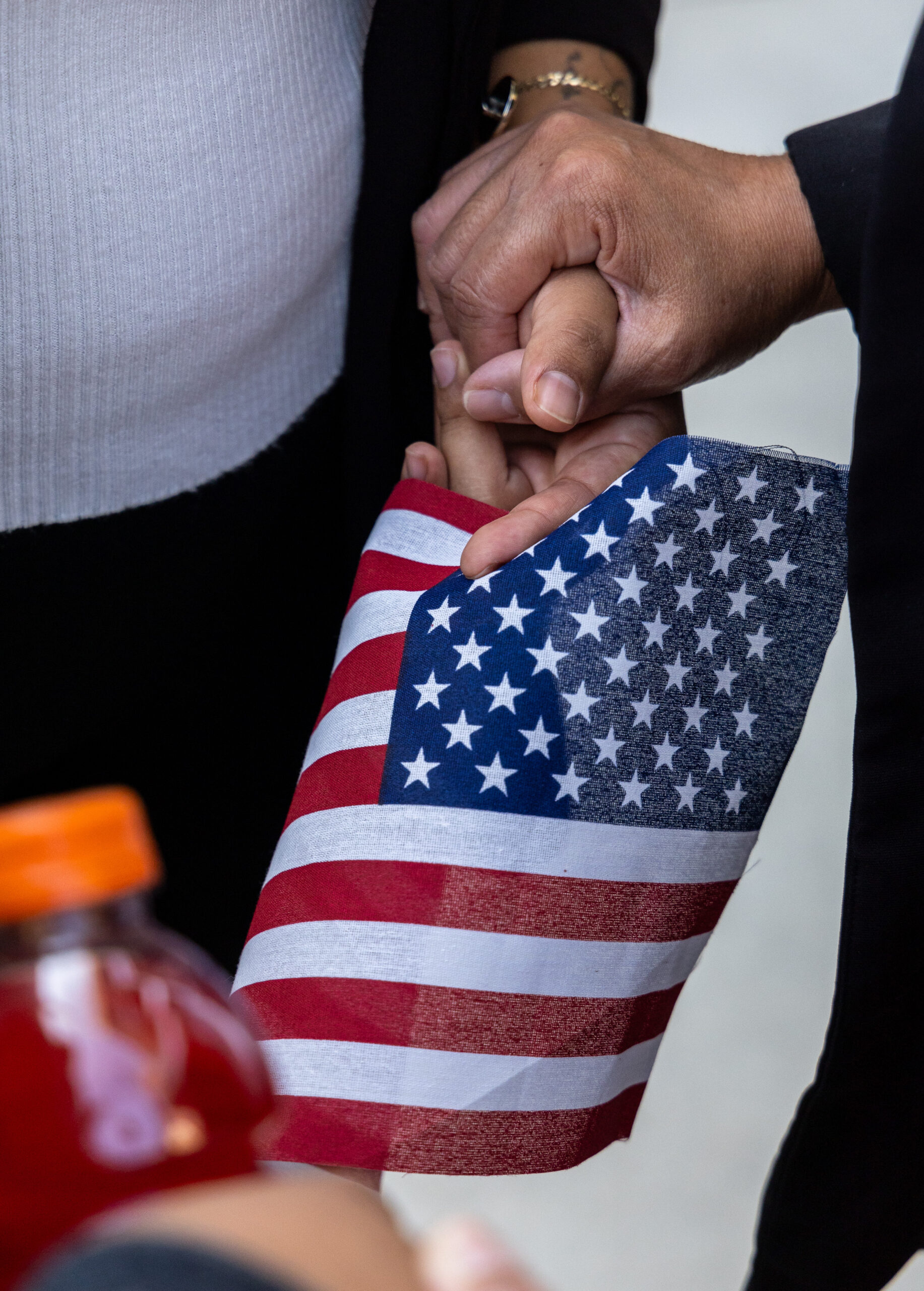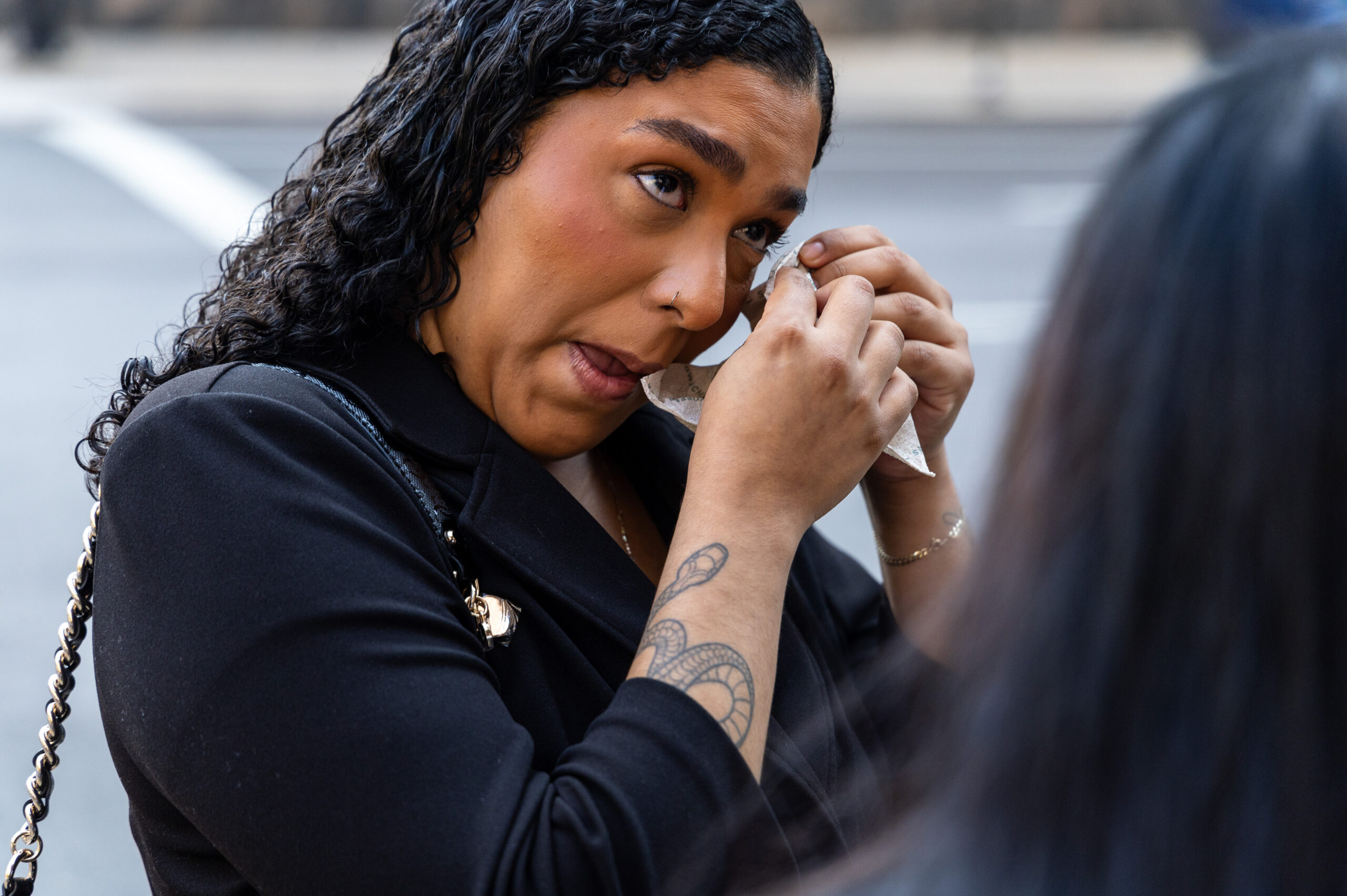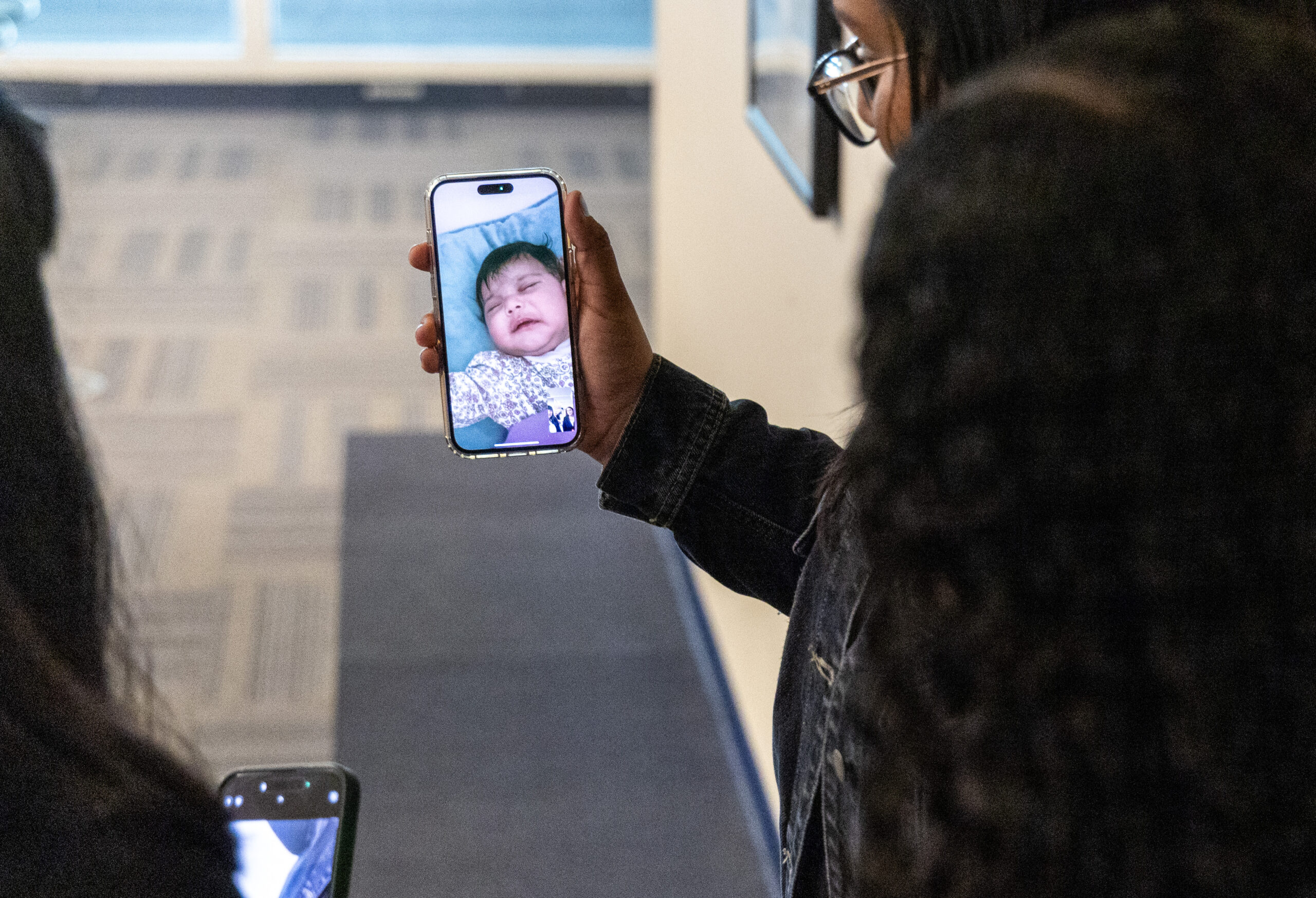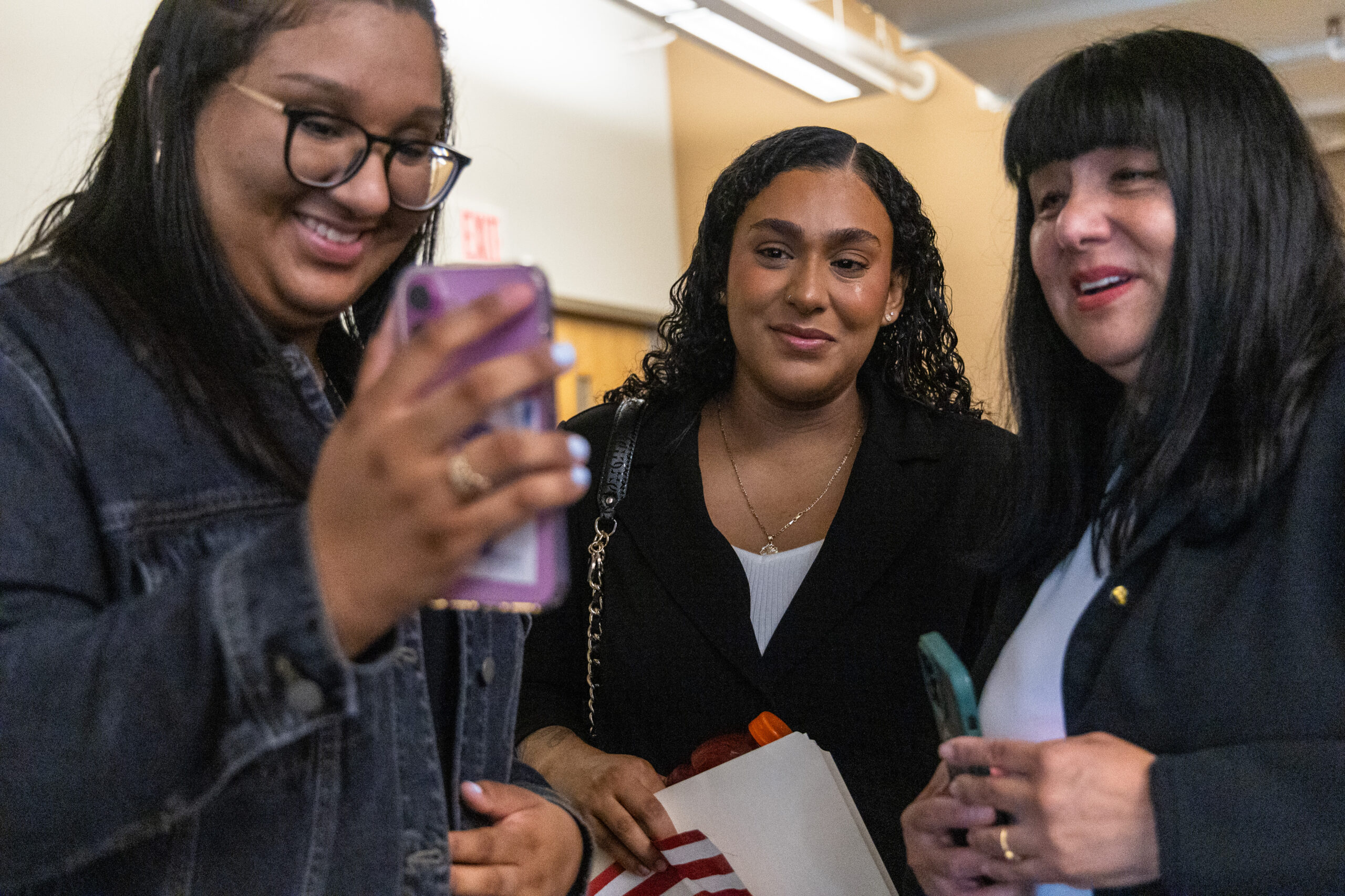Tears collected in Maryori Urbina-Contreras’ eyes as she stood outside Chicago’s U.S. Citizenship and Immigration Services building, an American flag grasped tightly in her hand. The 24-year-old blotted her eyes before turning to enter the building where her citizenship test awaited.
The test was a long time coming for Urbina-Contreras, who arrived in the U.S. in 2014 from Honduras after experiencing and witnessing gang violence in her hometown of Tegucigalpa.
At age 13, Urbina-Contreras left Honduras without telling anyone and with $20. She sought to find her mom, who had left when she was just 8 months old and wound up in Waukegan. The trip took Urbina-Contreras a month as she traveled the 1,900 miles through Guatemala and Mexico on her own by foot, bus and car, even rafting across the Rio Grande.
Honduran teen, who entered U.S. as unaccompanied child, awaits word on fate
More than 10 years later, Urbina-Contreras is still weaving her way through the immigration process. She was granted asylum in 2018 after telling the judge she dreamed of being a nurse, and then received permanent residency in 2021. Recently, a letter arrived notifying her that she could take her citizenship test on Saturday morning after applying for naturalization last July.
Those years culminated in a dream come true for Urbina-Contreras, who passed her citizenship test this weekend after hours of studying American facts with her younger sister. Her tears of nervousness turned to tears of joy as she appeared through a set of double doors, fist-pumping the air as she declared, “I passed.”
She then made her way to two others: her 16-year-old sister, Valeria Ruiz, who quizzed her older sister relentlessly, and humanitarian advocate and pastor Julie Contreras, who has known the family for over a decade.
Urbina-Contreras’s achievement comes at a time of strife for many immigrants across the country, particularly in the Chicago area. An influx of U.S. Immigration and Customs Enforcement agents arrived in the city earlier this month in what President Donald Trump’s administration is calling “Operation Midway Blitz.”
The timing of the naturalization is not lost on Urbina-Contreras, who said she was initially fearful of taking the exam when she got the letter and worried that she would be arrested. However, after reassurances from her family, attorneys, citizenship officials, and pastor Contreras, she felt ready. Urbina-Contreras was not only doing for herself but also for other refugees and the wider Latino community, who she said is “sometimes just trying to work harder and be better.”
The surge of immigration enforcement has produced arrests and agent sightings all over the Chicagoland area, including detainments in communities stretching from Elgin to Little Village. The presence of the enforcement has drawn controversy from politicians and community members alike, including after a man was shot and killed by an ICE agent during a traffic stop in Franklin Park.
It’s unclear how many arrests have been made and how long the agency might stay in the area. It is believed that the Department of Homeland Security is using North Chicago’s Great Lakes Naval Base as its operational home for the time being. Protests have broken out across the suburbs and city, including one put on by high school students outside the Trump tower, the naval base and the ICE processing facility in Broadview, where officials deployed tear gas on protestors Friday.
“I think this country has given me so many opportunities but also, we’re going through a hard time with immigrants,” Urbina-Contreras told the Tribune in the waiting area after passing her citizenship test. “I’m not an immigrant anymore, I’m an American, but I have to step up for my Latino community and all the refugees and all of the families and (remind them) that we can do it the legal way, the right way.”
In Contreras’s eyes, Urbina-Contreras is the model person to become a U.S. citizen. After knowing her for a decade and driving her to various immigration appointments and hearings, Contreras said the trio was walking out of the building very proud.
“She’s a message of hope, a beacon of light for others to look across the nation and say, ‘this can be me,’” Contreras said. “Aspire to this. Go and get your attorneys, do what you have to do.”
Over FaceTime, Urbina-Contreras shared the news with her mother and newborn daughter, who she said inspired her to file for citizenship in July. Passing the test “means everything,” she said.
“I am a mother now and it makes me happy that my daughter–she’s going to be able to know the process we went through, we fought, and we are representing all those refugees and we are the hope,” Urbina-Contreras said. “I’m happy that I’m able to represent that and my daughter will get to know all of this story later on and to make sure she fights for the community as well.”
For Ruiz, who was 6 when Urbina-Contreras arrived in the U.S., her older sister’s passing of the test marks a moment she’s been advocating for throughout her life. As a child, she spoke on television and in front of legislators and court officials, telling them she wanted her sister to stay in the country.
“I feel really grateful that they gave her an opportunity to stay here and to be a citizen,” Ruiz said. “Not everybody has that opportunity.”
The U.S. will persevere through this time and continue to be a place where immigrants can come for a new start, Contreras added. “We are all the United States of America. It’s just not one person. This is not a dictatorship, this is a democracy,” Contreras said. “And if you ask me what democracy looks like, this is what democracy looks like. Maryori Urbina-Contreras as a U.S. citizen.”
While the fear running through the Latino and immigrant communities breaks Urbina-Contreras’ heart, she hopes she can be an example to people struggling with their immigration status to keep fighting, because “This is what the American Dream looks like,” she said. For now, she awaits to learn the date of her citizenship swearing-in ceremony, where she will officially become a naturalized citizen.
“I’m grateful that this country gave me the opportunity to grow,” Urbina-Contreras said. “I will definitely be the best American.”

